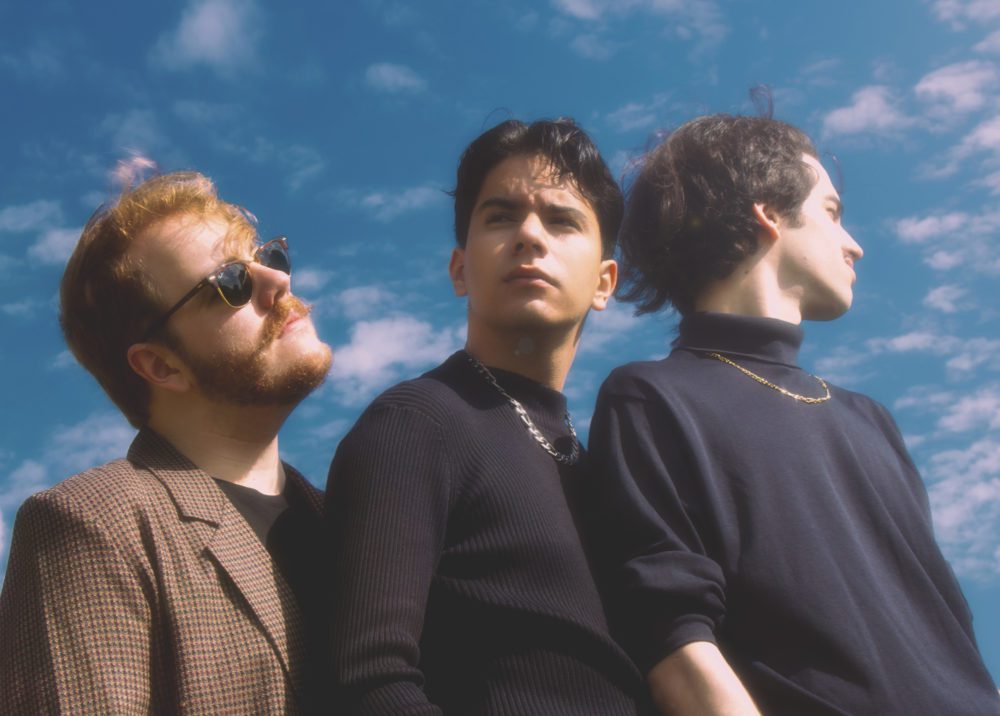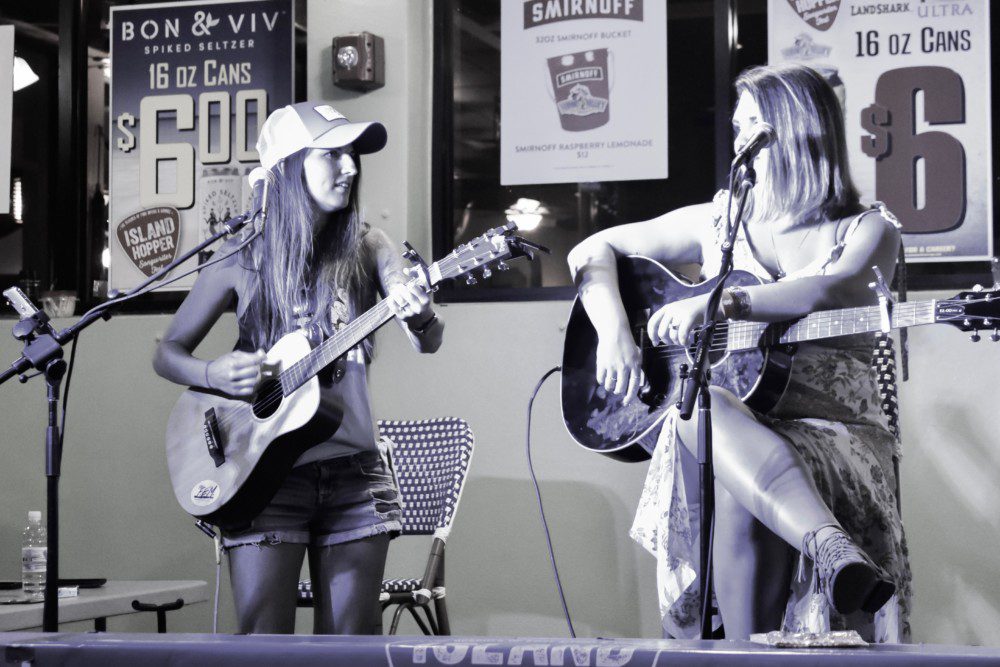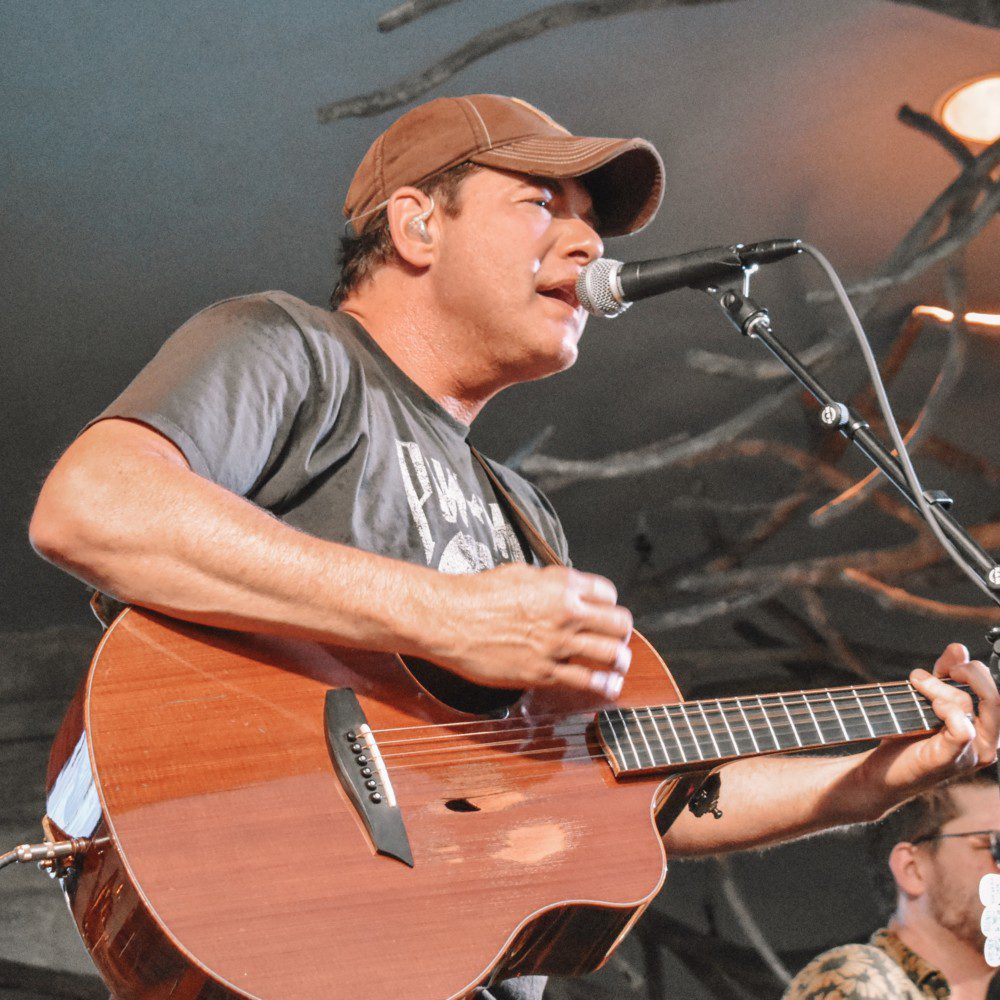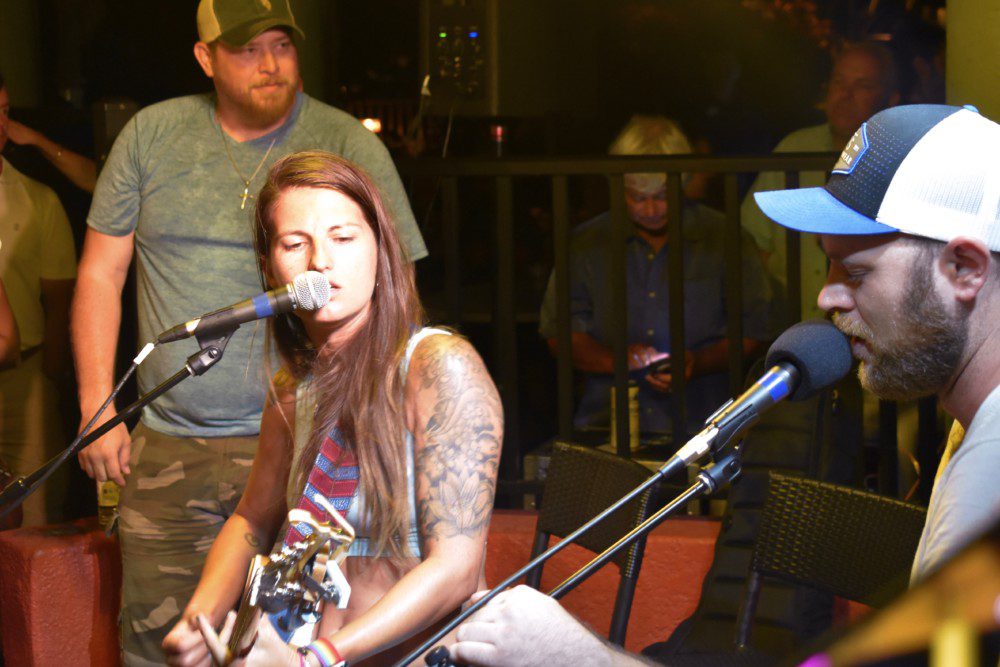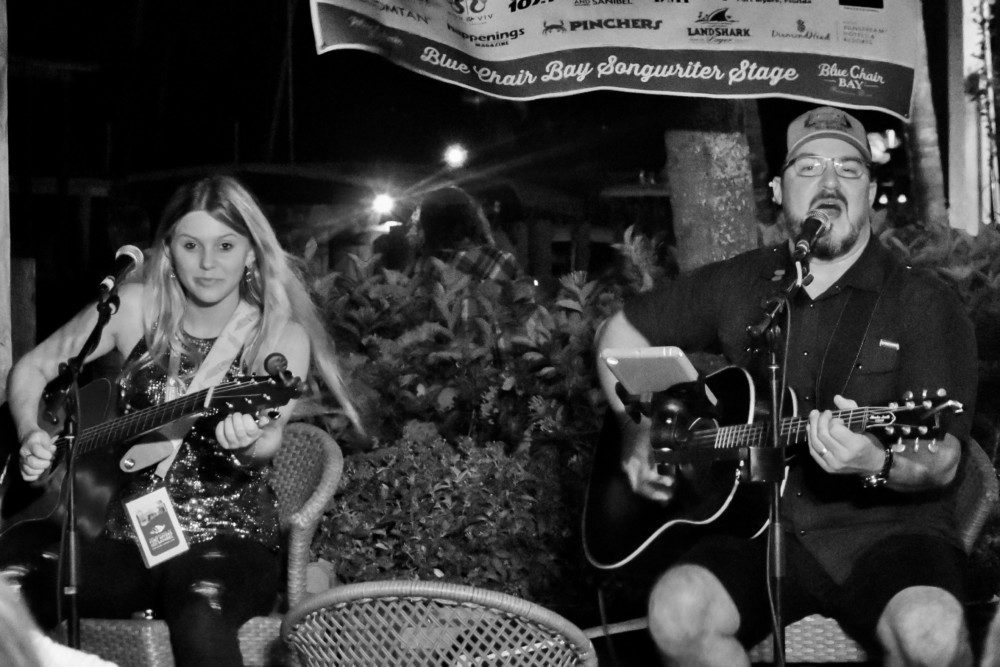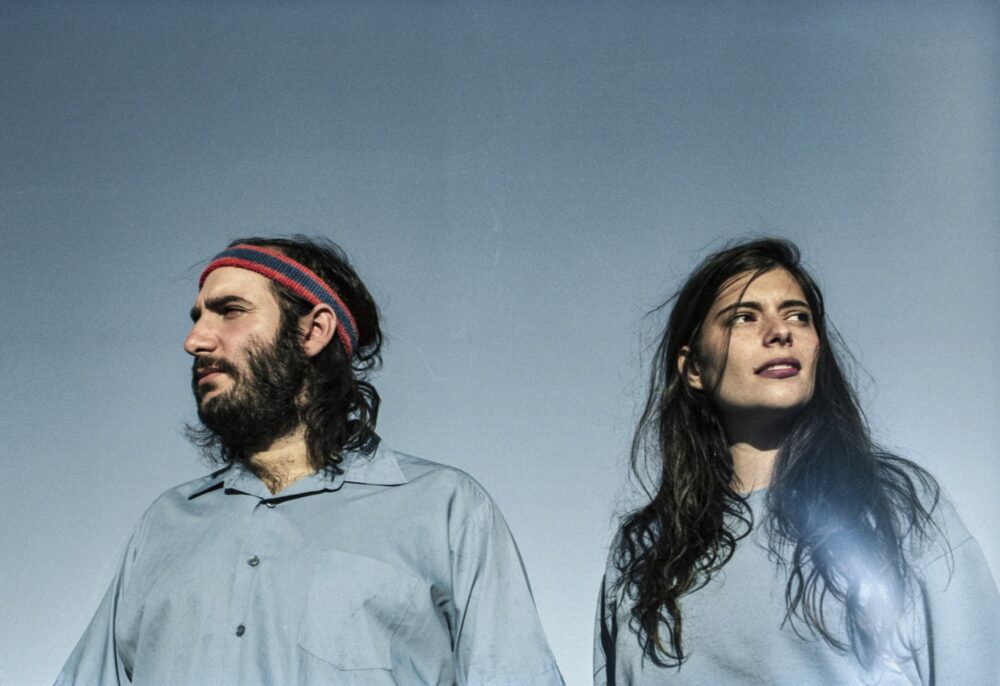
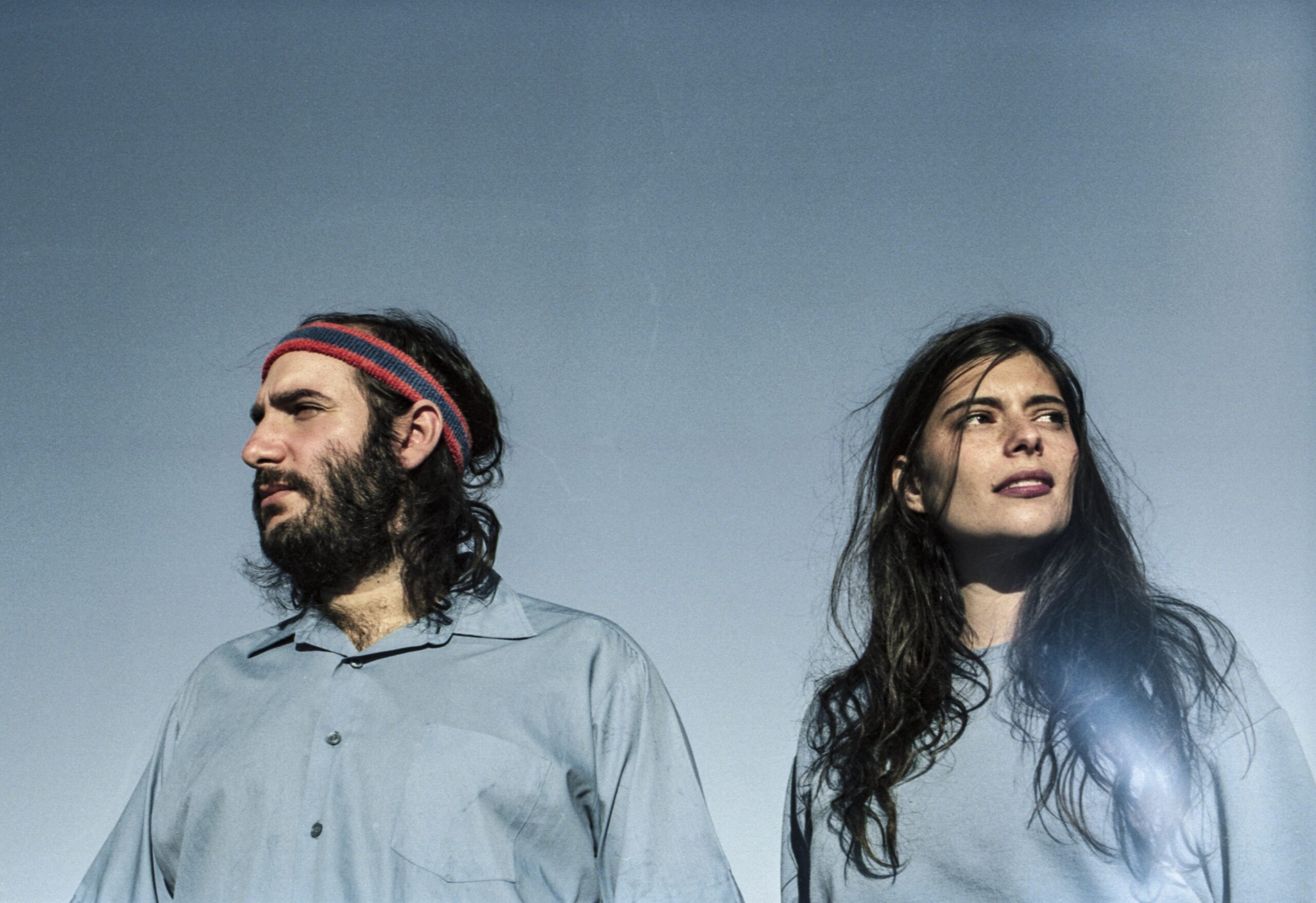
On “Soft Science,” the opening cut to Pearl & the Oysters’ third album, Flowerland, Juliette Davis is the voice reminding you over a mellow disco groove to take some time out for yourself. “Hey, come to the beach,” she sings, “You studied all night long, you deserve a break.” But guest vocalist Kuo-Hung Tseng, from Taiwanese band Rollercoaster Sunset, responds, “I can’t talk right now/I really should work/It wasn’t enough/Soft science is hard.”
“I didn’t really want to sing this,” says Joachim Polack, who, along with Davis, comprises Pearl & the Oysters. “I thought it was too close to me.”
Flowerland is a reflection of the end of the duo’s stint living in Gainesville, Florida, where Polack was working on his PhD in musicology. He and Davis grew up in Paris— they’ve actually known each other since high school— and studied musicology in France. But, the postgraduate system in the U.S. was different, with more coursework and a shorter period of time to complete the program. In France, they could juggle school, a band, and side jobs. That proved to be harder in the U.S. “The album is also a little bit about disillusionment with going to school and the toll it took on my health,” says Polack. “Having a band and doing that at the same time was really more than I could handle sometimes, and I think that it was a difficult time to navigate, but I’m really grateful for all the people that we met.”
He adds, “It was a really beautiful time in our lives.”
It wasn’t just school that was different in Florida. “The seasons were different. Everything seemed so new,” says Davis.
Over the course of Pearl & the Oysters’ three albums, all of which were at least partially made while they were living in the Sunshine State, Davis and Polack have drawn inspiration from an environment that was quite different from France. The terrain, plants and insects all played in a role in sparking the duo’s creativity on their 2017 self-titled debut, 2018’s Canned Music, and now Flowerland.
“I think one thing that is different in this record is that it’s still very sunny and, basically, it’s an upbeat record in many ways,” says Polack, “but I think, for the first time, it’s more melancholy, trying to address stuff that we were going through in those last couple years that we lived in Gainesville.”
Flowerland certainly has its moodier moments. “I think that we’re incapable of doing a full-on gloomy album, but it has a little bit more of that,” he notes.
“But,” Polack adds, “it’s more balanced in terms of the gamut of emotions than the first couple of albums, which were very much sunshine pop, like bubblegum almost. Everything was over-the-top cute and I think that, this one, we tried to keep that element because that’s the music we like, but also be a little more transparent with what we were going through mentally.”
The musicians that they met while living in Gainesville also helped shape the album. “In this way, the influence is clear,” says Davis. “We didn’t work with studio musicians that did exactly what we asked them to do. We really collaborated on the sound.”
That includes the duo Edmondson, who Polack describes as having a Smile-era Beach Boys vibe. “Whenever we wanted percussion, we would go over to their house and they had this big box full of all kinds of percussive contraptions,” he recalls.
They also incorporated collaborators from outside of the Gainesville area. Kuo-Hung Tseng from Sunset Rollercoaster is one. Davis and Polack are big fans of the band and were able to connect through a mutual friend. They also linked up with Jules Crommelin of Australian band Parcels through a mutual pal, and sitarist Ami Dang via their former bass player. As Polack notes, they had good luck with finding collaborators simply by asking. “I feel like the lesson that I learned from making this specifically is that people should not shy away from doing that, because people are down,” says Polack. “It’s something that, in indie pop or rock music, is happening more and more.”
Before mixing the album, Davis and Polack moved cross-country. “We loved living in Florida for many reasons, but it was definitely not a destination for us. We didn’t plan on staying there for long,” says Davis. “The question was where—do we go back to France? Should we try another city in the Southeast?”
They decided on Los Angeles after playing a show in the city and made the move in January of 2020. “We understood the potential that the city has for us as musicians, as pop music musicians and definitely thought that it would be a good move and we are so glad that we did,” says Davis.
They had just enough time to play a couple shows and start meeting people before the COVID-19 lockdown began. “Now that things are reopening, we’re fully understanding the potential of this city as musicians,” says Davis. “We’ve already been part of a few incredible projects in the past few months. We’ve been invited to play a lot of different shows.”
Davis adds, “Even though we arrived at the worst moment, we managed to actually really settle ourselves in this time in a pretty good way.”
Follow Pearl & the Oysters on Instagram for ongoing updates.

